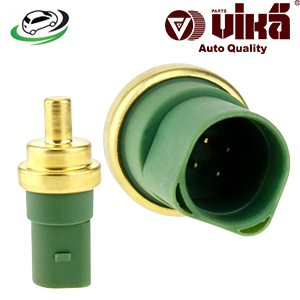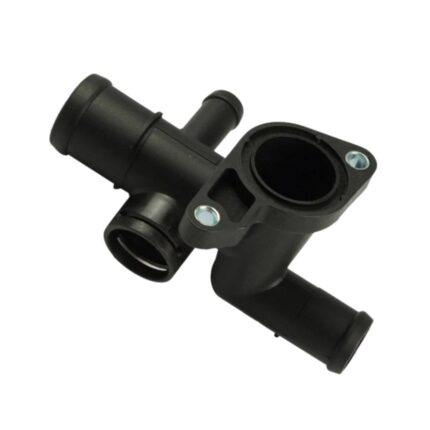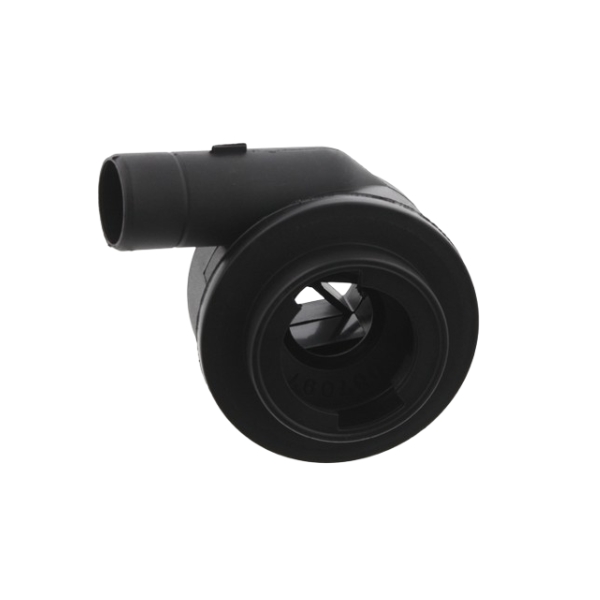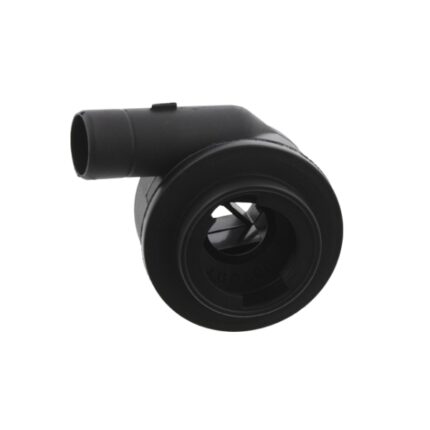Get VW Beetle 2.0L Engine Crankcase Vent Valve 06A103465 in Kenya
The engine crankcase vent valve, also known as the positive crankcase ventilation (PCV) valve, is a critical component in modern internal combustion engines. Its primary function is to manage the gases that build up in the crankcase during engine operation. This small but vital valve plays a significant role in maintaining engine efficiency, reducing emissions, and ensuring the longevity of engine components. This comprehensive overview explores the function, importance, types, common issues, maintenance, and consequences of a malfunctioning crankcase vent valve.
Function of the Engine Crankcase Vent Valve
The engine crankcase vent valve is responsible for controlling the flow of crankcase gases into the intake manifold. These gases, which include unburned fuel vapors, blow-by gases (combustion gases that escape past the piston rings), and moisture, can build up in the crankcase during engine operation. Here’s how the PCV valve functions:
- Ventilation of Crankcase Gases: The primary function of the crankcase vent valve is to direct these gases from the crankcase to the intake manifold, where they can be re-burned in the combustion chamber. This process helps to reduce the accumulation of harmful gases in the crankcase and prevents pressure buildup.
- Maintaining Engine Efficiency: By managing crankcase pressure and directing gases back into the intake manifold, the PCV valve helps maintain optimal engine efficiency. Proper ventilation prevents excessive pressure from building up, which could otherwise lead to oil leaks, reduced engine performance, and increased wear on engine components.
- Reducing Emissions: The PCV system is part of the vehicle’s emissions control system. By recirculating crankcase gases into the intake manifold, the PCV valve helps reduce the amount of harmful emissions released into the environment. This process contributes to compliance with emissions regulations and helps minimize the vehicle’s environmental impact.
- Preventing Oil Contamination: Crankcase gases can contain moisture and unburned fuel that could potentially contaminate the engine oil. The PCV valve helps prevent this contamination by directing the gases to the intake manifold, thus maintaining the quality of the engine oil and extending its service life.
Importance of the Engine Crankcase Vent Valve
The engine crankcase vent valve is essential for several reasons:
- Engine Longevity: Proper ventilation of crankcase gases helps reduce pressure and prevent the buildup of harmful substances. This, in turn, reduces the risk of engine damage, oil leaks, and premature wear on engine components, contributing to the engine’s overall longevity.
- Fuel Efficiency: By ensuring that crankcase gases are properly managed and reintroduced into the combustion process, the PCV valve helps maintain optimal engine efficiency. This contributes to better fuel economy and lower operating costs.
- Emission Control: The PCV valve plays a crucial role in reducing vehicle emissions. By recirculating crankcase gases, it helps minimize the release of unburned fuel vapors and other pollutants into the atmosphere, helping the vehicle comply with emissions standards.
- Preventing Engine Oil Contamination: The PCV valve helps maintain the quality of the engine oil by preventing contamination from moisture and unburned fuel. This helps extend the life of the oil and ensures proper lubrication of engine components.
Types of Crankcase Vent Valve Systems
There are several types of crankcase vent valve systems, each with its own design and function:
- Positive Crankcase Ventilation (PCV) Valve:
- Description: The traditional PCV valve is a one-way valve that regulates the flow of crankcase gases into the intake manifold. It opens and closes in response to engine vacuum and pressure changes.
- Function: The PCV valve allows gases to flow from the crankcase to the intake manifold under certain conditions while preventing reverse flow. It helps maintain the correct balance of crankcase pressure and ensures efficient ventilation.
- Breather Valve:
- Description: A breather valve, or a crankcase breather, is a type of venting system that allows fresh air to enter the crankcase while expelling crankcase gases.
- Function: The breather valve helps regulate crankcase pressure by providing a path for fresh air to enter and for gases to exit. It is commonly used in conjunction with the PCV valve to maintain proper engine ventilation.
- Crankcase Ventilation System with Oil Separator:
- Description: Some modern engines use a crankcase ventilation system that includes an oil separator. This system captures and separates oil mist from the crankcase gases before they are directed into the intake manifold.
- Function: The oil separator helps prevent oil contamination of the intake manifold and combustion chamber, ensuring cleaner engine operation and reduced emissions.
Common Issues with the Crankcase Vent Valve
Like any automotive component, the crankcase vent valve can develop issues over time. Common problems include:
- Clogging or Blockage: The PCV valve can become clogged with sludge, carbon deposits, or contaminants. This can restrict the flow of gases and affect engine performance.
- Valve Sticking: The PCV valve can become stuck in the open or closed position due to wear or contamination. A stuck valve can lead to improper ventilation and engine performance issues.
- Vacuum Leaks: A damaged or leaking PCV valve can cause vacuum leaks, leading to rough idle, poor engine performance, and increased emissions.
- Oil Consumption: A malfunctioning PCV valve can lead to increased oil consumption due to excessive blow-by gases or oil vapor entering the intake manifold.
Signs of a Failing Crankcase Vent Valve
Recognizing the signs of a failing crankcase vent valve is crucial for timely maintenance and preventing engine damage. Common symptoms include:
- Rough Idle or Stalling: A faulty PCV valve can cause rough idling or stalling due to improper air-fuel mixture and vacuum leaks.
- Increased Oil Consumption: If the PCV valve is not functioning correctly, it can lead to higher oil consumption and increased oil levels in the intake manifold.
- Check Engine Light: A malfunctioning PCV valve may trigger the check engine light. The ECU may store trouble codes related to the PCV system, which can be retrieved using an OBD-II scanner.
- Oil Leaks: Excessive pressure in the crankcase due to a faulty PCV valve can cause oil leaks around seals and gaskets.
- Poor Engine Performance: A failing PCV valve can lead to reduced engine performance, including poor acceleration and decreased fuel efficiency.
Maintenance and Replacement of the Crankcase Vent Valve
Proper maintenance and timely replacement of the crankcase vent valve are essential for ensuring optimal engine performance. Here are some key practices:
- Regular Inspection: Periodically inspect the PCV valve and its associated components for signs of wear, clogging, or damage. Check for proper operation and clean or replace the valve as needed.
- Clean or Replace the Valve: If the PCV valve becomes clogged or contaminated, it may need to be cleaned or replaced. Follow the manufacturer’s recommendations for cleaning or replacing the valve.
- Check for Leaks: Inspect the PCV valve and related hoses for vacuum leaks or signs of damage. Address any leaks promptly to prevent engine performance issues.
- Use Quality Parts: When replacing the PCV valve, use high-quality OEM (Original Equipment Manufacturer) parts to ensure compatibility and reliability.
- Regular Maintenance: Follow the vehicle manufacturer’s maintenance schedule for the PCV system and other engine components. Regular maintenance helps prevent issues and ensures proper engine operation.
Consequences of a Malfunctioning Crankcase Vent Valve
A malfunctioning crankcase vent valve can have several negative consequences, including:
- Engine Damage: Improper ventilation of crankcase gases can lead to excessive pressure, which can damage engine seals, gaskets, and other components. This can result in oil leaks and costly repairs.
- Reduced Fuel Efficiency: A faulty PCV valve can affect the air-fuel mixture and engine performance, leading to decreased fuel efficiency and higher operating costs.
- Increased Emissions: A malfunctioning PCV valve can lead to incomplete combustion and increased emissions, potentially causing the vehicle to fail emissions tests and contributing to environmental pollution.
- Poor Engine Performance: Issues with the PCV valve can cause rough idling, stalling, and reduced power output, affecting the overall driving experience.
- Oil Contamination: If the PCV valve is not functioning correctly, it can lead to oil contamination, reducing the quality of the engine oil and increasing the risk of engine damage.
Follow us on Facebook for more parts.




